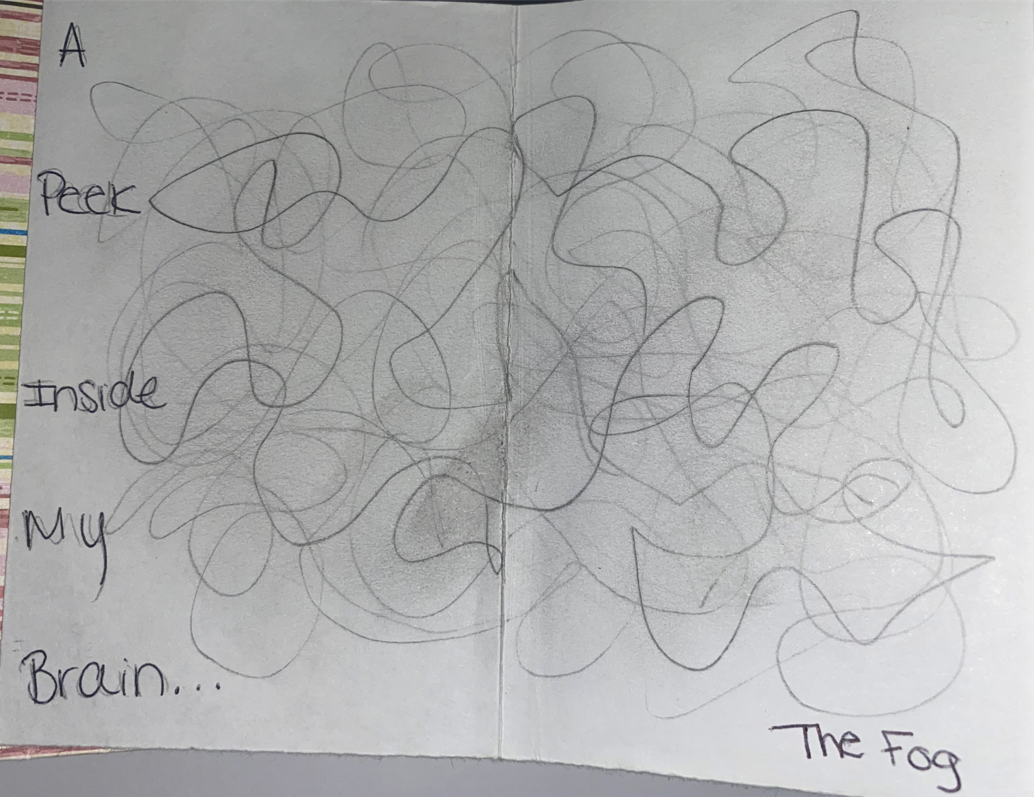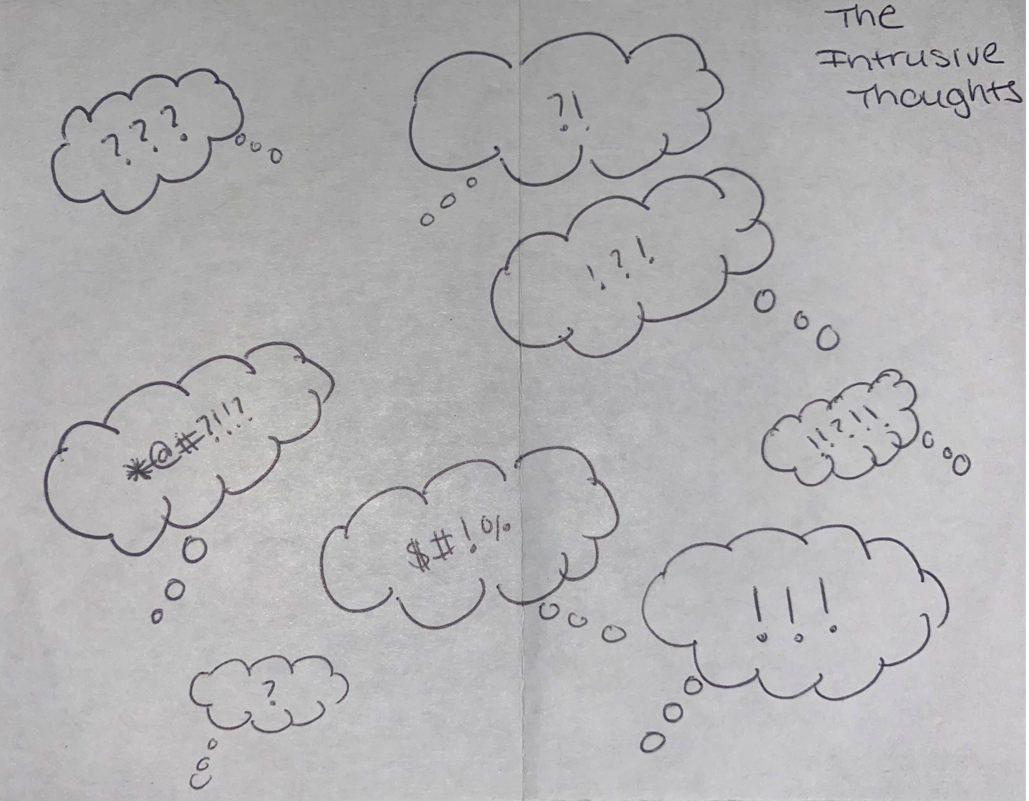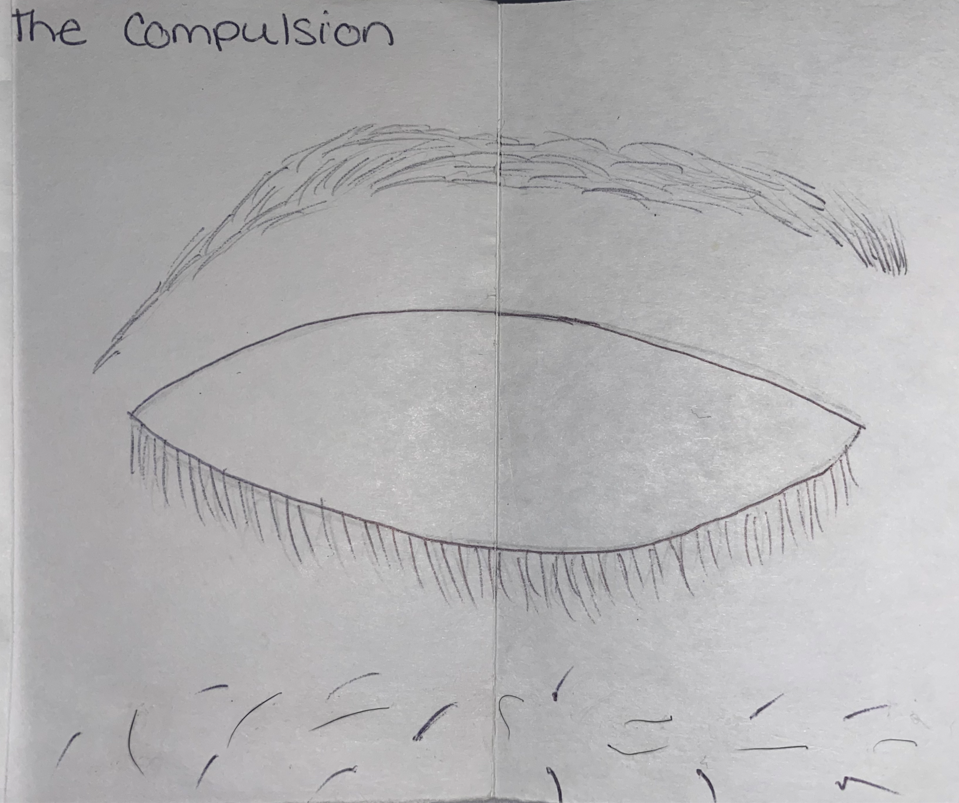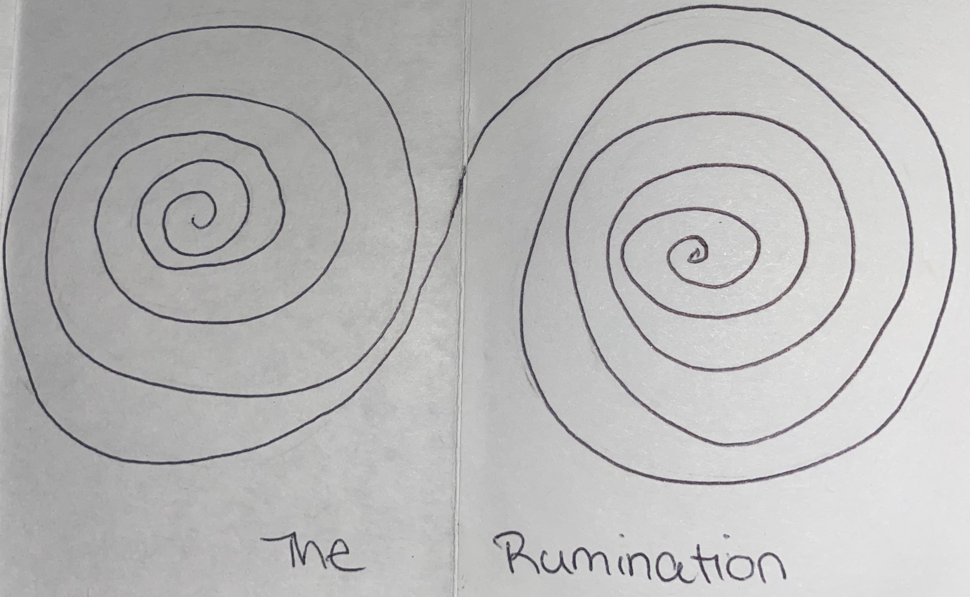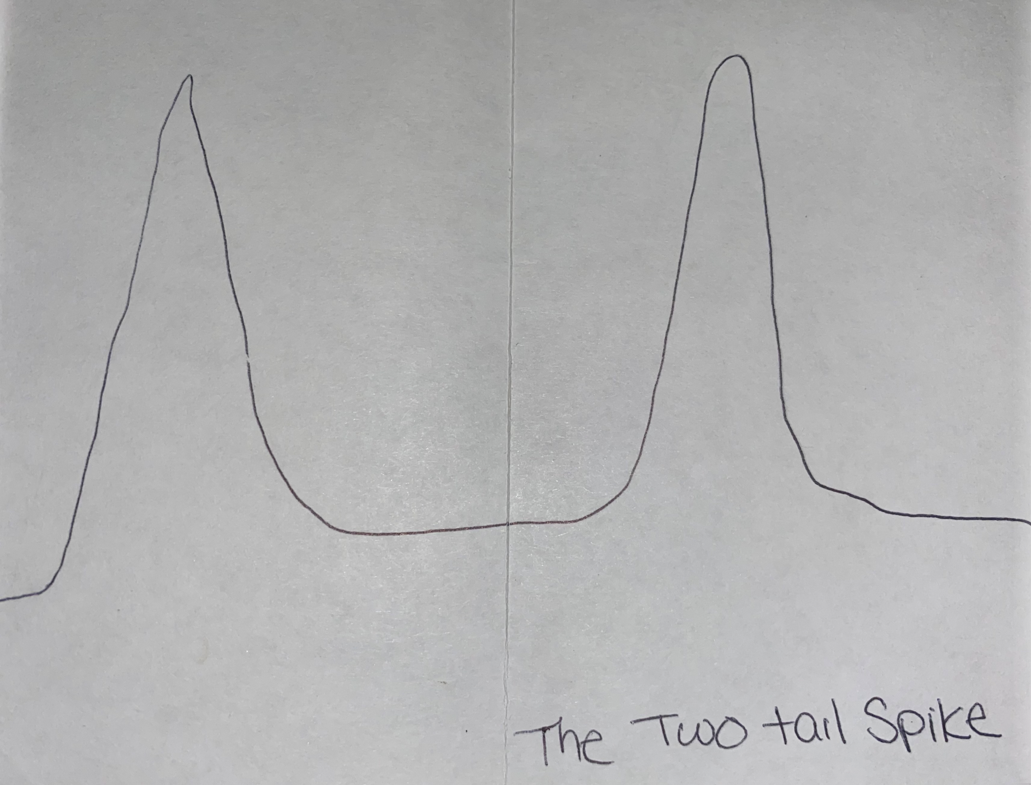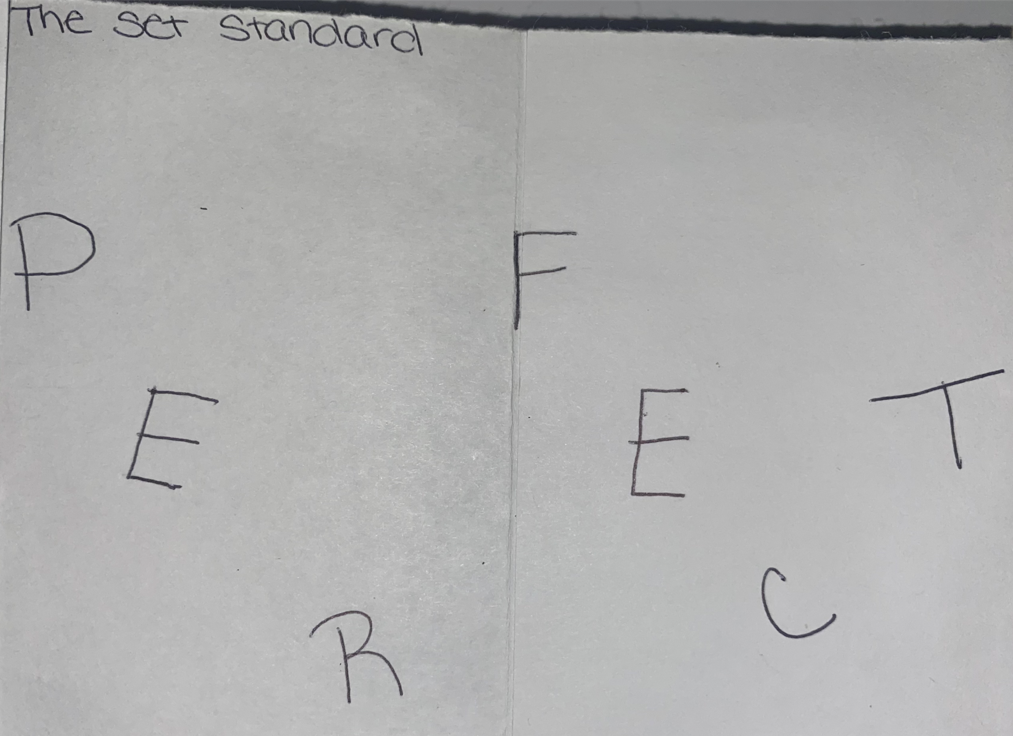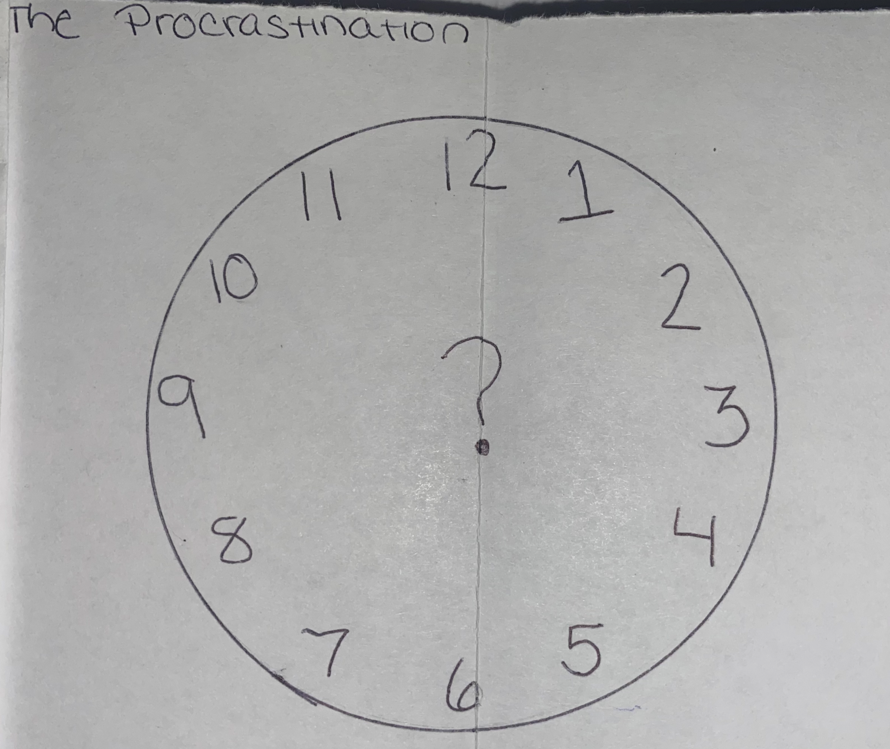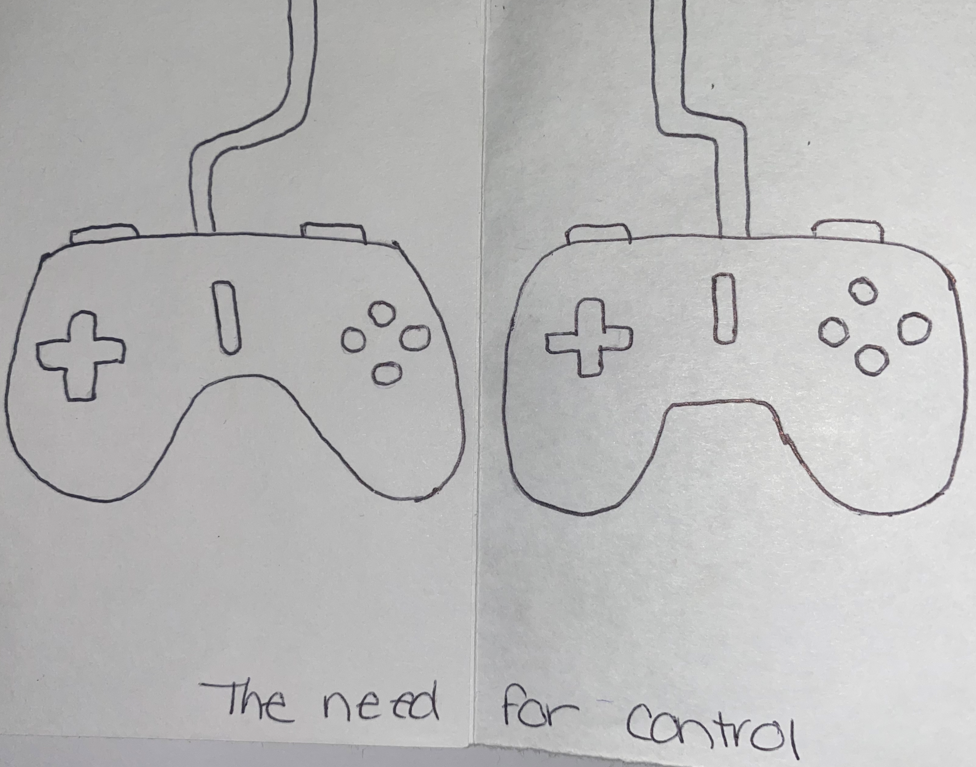Challenging OCD with Arts
My group therapy clients decided to have an art night one day. One of my female clients created an original art, an origami book, dedicated to her Obsessive Compulsive Disorder (OCD). She is 28 years old and she suffers with OCD, clinical perfectionism and trichotillomania (hair pulling).
This book has a cover made of perfect straight lines, a perfect look on the outside but if we look inside, the first thing we see is “a peek inside her brain” , a drawing of a fog. Brain fog is a representation of many mental health issues but for clients suffering with OCD and anxiety disorders this is very common.
The next page of the book says “the intrusive thoughts”, the obsession, many intrusive thoughts that bring anxiety and this dread, gets stuck in her mind and doesn’t want to go away.
What follows (on the next page of the book) is the compulsion and for my client this page represents the behavior compulsion which supposed to soothe the intrusive thoughts. What she drew is an eye with eyelashes. My client is pulling her eyebrows and eyelashes to appease her anxiety and sometimes getting rid of “imperfection”.
Following drawing represents another compulsion and this is the mental compulsion that is happening in her mind unseen by others, this is called a rumination. Endless spiral of ruminating thoughts, a ritual that “helps” temporarily decrease the anxiety of obsessions. My client can be caught in this rumination for hours.
Then she drew a well-known two-tailed spike (squiggly line) or two tail intrusive thought. When my client needs to decide, her brain is telling her every decision she makes is not good enough. Her brain comes up with “What if the other decision was better?” And the brain goes back and forth and again this activity might be endless.
The next drawing is the self-doubt (question marks). For somebody who suffers with unhelpful clinical perfectionism the self-doubt is very present. The harsh self-criticism, the fear of failure, the fear of making mistakes, fear of judgement by others, avoidance of activities or people for this fear, the constant reassurance seeking from friends, partners, coworkers or even the internet, seeking a feedback about her own value.
And hand in hand with self-doubt goes perfection. Client that suffers with clinical perfectionism wants to be perfect, everything she does must be perfect, that is the only way the anxiety/fear that is driving this, will go away. Client has the need to constantly challenge herself with sometimes unreachable goals (to prove her own value and worth), and if she doesn’t reach those goals, it is a confirmation of her failure and deficiency and the depression hits hard. And sometimes these challenging goals are reached and the brain says “well that was too easy, you need to set another goal” and the pursue starts again relentlessly with suffering for the client and her surroundings.
My client decided to draw “procrastination” next which is a big one for her. Why people procrastinate? In many cases of OCD sufferers, it's the avoidance of unpleasant task. The task has to be perfect, my client cannot fail and it is so overwhelming, she is frozen and cannot proceed. It is soothing to postpone, at least for a while.
The following drawing has two remote control/ joysticks, which represents her need for control. That's something that is also driven by anxiety/fear. Humans don't like uncertainty, it is scary, however somebody who suffers with an anxiety disorder, uncertainty is avoided at all costs. The mind runs hundred scenarios planning for every possible outcome to avoid anxiety and have the false feeling of being in control. Often I hear from my clients” I feel safe when I have control”. If something goes wrong, unplanned etc. the brain is flooded by fear and it is very debilitating.
This client was benefitting greatly for being in a therapy group. Sometimes creating art, sharing with others in a group, it helps the client to gain insight on her disorder and separate herself from her OCD. Client receives feedback from others and also meet people that appreciate the daily challenges that OCD sufferer goes through and it is appreciated it by others. Group therapy combines individuals that get it, and perhaps suffer with a similar issue. As this client demonstrated in her book, OCD doesn't make sense. It's illogical, since it’s driven by anxiety that cannot be disputed with evidence. However OCD is not a character flaw, it is a disorder, a faulty circuit block in a brain. Hope my client’s origami book helped understanding OCD a bit more.

